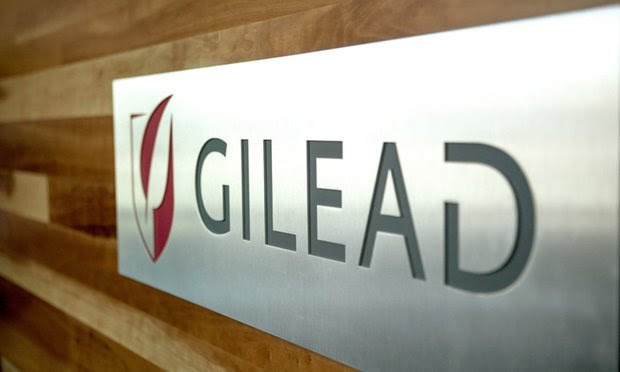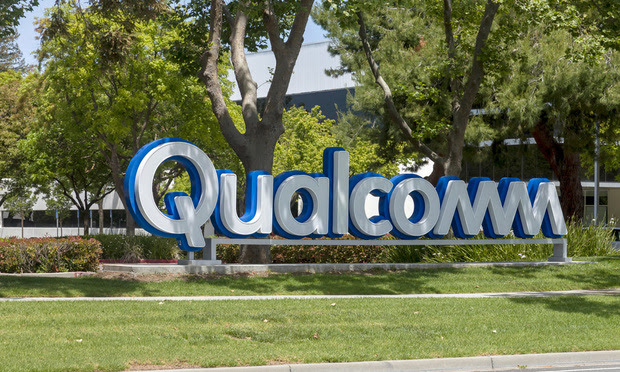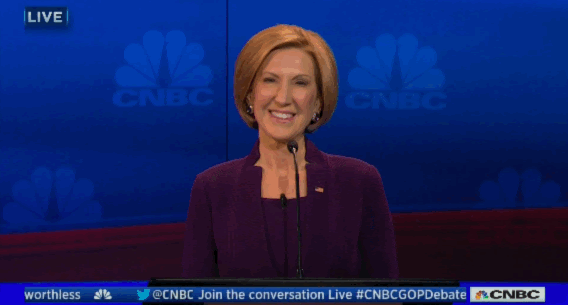Skilled in the Art: Gilead and Sidley Take on Uncle Sovereign + Qualcomm Gets Its Stay + Fiorina Lends Words but Not Wallet
Gilead Sciences is trying to haul the U.S. before its own Patent Trial and Appeal Board.
August 23, 2019 at 06:35 PM
10 minute read
Welcome to Skilled in the Art. I'm Law.com IP reporter Scott Graham. It's been a busy week in intellectual property:
•Gilead Sciences is trying to haul the USA before its own Patent Trial and Appeal Board.
•Apple is pleading for one last stay of a $439 million patent judgment.
•Carly Fiorina and Gil Amelio support IP holding company's Supreme Court bid, but not on their own dime.
• Morgan Lewis gets appellate vindication.
• Amazon's senior attorney for trademarks to fly solo.
As always, you can email me your own thoughts and follow me on Twitter.

Gilead, Sidley Take on the Ultimate Sovereign
Gilead Sciences has turned to Sidley Austin for its own #BreakthePatentcampaign.
The Foster City, California pharma giant on Wednesday asked the Patent Trial and Appeal Board to invalidate two patents held by the Department of Health and Human Services. The government apparently has been wielding the patents to try to lower the price of Gilead's Truvada drug when used for HIV prevention.
"The ongoing dialogue about these patents is a distraction from the important work being done by Gilead and its many community partners to reduce barriers" to HIV pre-exposure prophylaxis, or PrEP, the company said in a press release.
It's hard to imagine higher stakes for Gilead or for individuals at risk of HIV infection. For the IP community, Gilead's IPR petitions could take the debate over sovereign immunity at the PTAB to another level.
The Federal Circuit has ruled in the last year that states and Indian tribes aren't immune from PTAB challenges. Minnesota and a host of other states are expected to ask for Supreme Court review this fall.
If the Supreme Court ultimately adopts the same reasoning as the Federal Circuit—that IPRs are more like administrative review than civil litigation—then that logic would seem to apply equally to federal sovereign immunity, and Gilead would be on terra firma.
But it's worth remembering that the PTAB originally ruled that states do have immunity at the PTAB, but waive it when they assert their patents in district court. If the Supreme Court adopted that rubric, the United States would hold a Get Out of Jail Free card because it hasn't asserted the HHS patents yet.
The FDA approved Truvada for HIV patients in 2004, then in 2012 extended it to people who are at risk of infection, such as healthcare workers and the partners of people with the virus. AIDS activists argue that Gilead's exorbitant U.S. pricing—about $20,000 a year—limits access to the drug and puts both individuals and communities at greater risk. They're also suing Gilead for allegedly inflating the price of HIV meds through collusive license agreements.
Gilead struck a deal with HHS in May to donate enough pills to cover 200,000 uninsured people a year. That deal has played to mixed reviews, and apparently has not fully put to rest the issue of the U.S. patents.
In going for a knockout at the PTAB, Gilead argues that California-based AIDS research organizations and the Centers for Disease Control described the use of Truvada to prevent HIV more than a year before the government applied for its patents in 2006.
The two publications "each teach administering the same two agents [that make up Truvada] in their same, FDA-approved amounts (200 mg FTC and 300 mg TDF) to individuals confirmed to be HIV-negative to prevent HIV infections," Gilead'spetitions state.
Gilead hired its litigation chief, Patricia Thayer, from Sidley in 2017. Sidley partner Jeffrey Kushan and associate Lauren Cranford Katzeff are taking the lead on the two IPR petitions.

Ninth Circuit Slam the Breaks on Qualcomm Antitrust Case
A government divided cannot stand. That's my takeaway from the Ninth Circuit's order this morning staying U.S. District Judge Lucy Koh's antitrust order against Qualcomm Inc.
As my ALM colleague Ross Todd reported, the court noted that the government's two chief antitrust enforcers—the Federal Trade Commission and Department of Justice's Antitrust Division—have split on the question of whether Qualcomm's licensing practices violated the antitrust laws. So have FTC commissioners themselves, the appellate court added.
"Whether the district court's order and injunction represent a trailblazing application of the antitrust laws, or instead an improper excursion beyond the outer limits of the Sherman Act, is a matter for another day," the court wrote. But given the "reasonable probability" that Qualcomm will prevail at the end of the day, the court will not compel it to license rival chip makers, to stop using chip supply in negotiations with OEMs, and to renegotiate existing licenses while its appeal is pending.
Don Rosenberg, Qualcomm's executive vice president and general counsel, said the order "will allow Qualcomm to continue to invest in inventing the fundamental technologies at the heart of mobile communications at this critical time of transition to 5G."
FTC Bureau of Competition Director Bruce Hoffman issued a statement saying that he was disappointed in the panel's decision, but looked forward to defending Koh's order on the merits. He also noted that other provisions of the injunction remain in place.

(Face)Time Is of the Essence for Apple
A few weeks ago I wrote that the Federal Circuit had finally, unequivocallyaffirmed a $439 million patent infringement judgment against Apple.
But never say never in patent litigation. Apple has now moved to vacate the Aug. 1 denial of rehearing in VirnetX v. Cisco Systems and is seeking leave to file a second petition for rehearing. Its hook is that the PTAB and Federal Circuit have now found all of the patent claims supporting a big chunk of the verdict invalid, save for one. And Apple says that last one is identical to another invalidated claim.
"It is only a matter of time—and likely not very much time—before all claims asserted against at least FaceTime are adjudged unpatentable," Wilmer Cutler Pickering Hale and Dorr partner Bill Lee writes on Apple's behalf. "Allowing a $439 million judgment to stand based on those claims would be manifestly unjust."
VirnetX says Apple has already had plenty of time—nine years since the case was originally filed. "Three trials have been held, each resulting in a verdict for VirnetX," MoloLamken's Jeff Lamken writes for VirnetX. "The motion should be denied and this case put to rest."
Apple is asking that the Federal Circuit at least wait while it petitions to the Supreme Court.
Tick tock.

Tech Amici Lend Names but Not Wallets
Former HP CEO (and presidential candidate) Carly Fiorina, former Apple CEO Gil Amelio and 10 other tech industry titans are lining up at the Supreme Court to support Imperium IP in its battle with Samsung Electronics. The IP holding company won a $28 million patent infringement judgment in the Eastern District of Texas, only to have the Federal Circuit take it away on the ground that Imperium didn't rebut Samsung's invalidity case.
Imperium and its amici argue that the Federal Circuit unfairly shifted the burden on validity to the patent owner. If jurors and Judge Amos Mazzant III didn't find Samsung's expert witness credible, that's the way the Seventh Amendment bounces. "The Federal Circuit's decision in this case is not an isolated incident, but rather the latest in a number of cases in which the court has imposed its own view of the facts in place of the considered determination of a duly-empaneled jury," Boies Schiller Flexner partner David Barrett writes on behalf of the Technology Industry Leaders.
The Supreme Court's amicus rules require that counsel disclose who paid for the preparation of a brief. Usually that means a pro forma footnote stating that no one other than the amicus or its counsel contributed.
The technology leaders took a different approach. "Pursuant to Rule 37.6," Barrett writes, "amici certify that no counsel for a party authored this brief in whole or in part, and that no person other than Petitioner has made a monetary contribution intended to fund the preparation or submission of this brief."
Imperium is also getting amicus support from U.S. Inventor, an organization of solo inventors and small business members. U.S. Inventor indicates that it paid for its brief itself.
This Case Was Not Close – Except for the Eligibility Part
Morgan Lewis & Bockius has emerged from a nightmare of a trial with a dreamy appellate result.
A year and a half ago, U.S. District Judge Harry Leinenweber of Chicago was awarding treble damages and attorneys fees and enjoining Techtronic Industriesfrom marketing the Ryobi GD 200 garage door opener. "This case was not close," Leinenweber wrote in a 110-page order that resulted in a $22 million judgment. The defendants "lost on every issue at trial after less than two hours of jury deliberation."
Except it turns out that one of the two patents—on a "wireless status condition data transmitter" that can work with a smartphone—is ineligible for patent protection. "The broad concept of communicating information wirelessly, without more, is an abstract idea," Judge Raymond Chen wrote for a unanimous panel in The Chamberlain Group v. Techtronic Industries.
Patent owner The Chamberlain Group and its Fish & Richardson counsel argued that the patent recites an improvement to a specific physical device. But Morgan Lewis partner Jason White argued that the mere physical nature of the claim elements aren't a defense to abstractness.
The court did uphold a second patent, on a rechargeable battery backup system, that supports the core jury award. But the judges ordered Leinenweber to reconsider the enhanced damages, the fee award and the injunction.
The defendants also were represented by DLA Piper..
Amazon's Trademark Counsel Goes Solo
Amazon.com's senior counsel for trademarks has launched his own IP shop. Stephen Coates told my ALM colleague Kristen Rasmussen that Coates IP will focus on intellectual property, marketing and advertising, social media, privacy and data protection, and product counseling.
"I've managed hundreds of law firms around the world throughout the years both in-house and outside, and I have perspective on what good legal services are and aren't," said Coates, who also has worked at Twitter and Kilpatrick Townsend & Stockton.
Coates said he plans to keep the firm small, but is looking to partner with someone on the patent side.
That's all from Skilled in the Art this week. I'll see you all again on Tuesday.
This content has been archived. It is available through our partners, LexisNexis® and Bloomberg Law.
To view this content, please continue to their sites.
Not a Lexis Subscriber?
Subscribe Now
Not a Bloomberg Law Subscriber?
Subscribe Now
NOT FOR REPRINT
© 2025 ALM Global, LLC, All Rights Reserved. Request academic re-use from www.copyright.com. All other uses, submit a request to [email protected]. For more information visit Asset & Logo Licensing.
You Might Like
View All
Skilled in the Art With Scott Graham: I'm So Glad We Had This Time Together

Design Patent Appeal Splinters Federal Circuit Panel + Susman Scores $163M Jury Verdict + Finnegan Protects Under Armour's House
Trending Stories
- 1Eliminating Judicial Exceptions: The Promise of the Patent Eligibility Restoration Act
- 2AI in Legal: Disruptive Potential and Practical Realities
- 3One Court’s Opinion on Successfully Bankruptcy Proofing a Borrower
- 4Making the Case for Workflow Automation
- 5Copyright Infringement by Generative AI Tools Under US and UK Law: Common Threads and Contrasting Approaches
Who Got The Work
J. Brugh Lower of Gibbons has entered an appearance for industrial equipment supplier Devco Corporation in a pending trademark infringement lawsuit. The suit, accusing the defendant of selling knock-off Graco products, was filed Dec. 18 in New Jersey District Court by Rivkin Radler on behalf of Graco Inc. and Graco Minnesota. The case, assigned to U.S. District Judge Zahid N. Quraishi, is 3:24-cv-11294, Graco Inc. et al v. Devco Corporation.
Who Got The Work
Rebecca Maller-Stein and Kent A. Yalowitz of Arnold & Porter Kaye Scholer have entered their appearances for Hanaco Venture Capital and its executives, Lior Prosor and David Frankel, in a pending securities lawsuit. The action, filed on Dec. 24 in New York Southern District Court by Zell, Aron & Co. on behalf of Goldeneye Advisors, accuses the defendants of negligently and fraudulently managing the plaintiff's $1 million investment. The case, assigned to U.S. District Judge Vernon S. Broderick, is 1:24-cv-09918, Goldeneye Advisors, LLC v. Hanaco Venture Capital, Ltd. et al.
Who Got The Work
Attorneys from A&O Shearman has stepped in as defense counsel for Toronto-Dominion Bank and other defendants in a pending securities class action. The suit, filed Dec. 11 in New York Southern District Court by Bleichmar Fonti & Auld, accuses the defendants of concealing the bank's 'pervasive' deficiencies in regards to its compliance with the Bank Secrecy Act and the quality of its anti-money laundering controls. The case, assigned to U.S. District Judge Arun Subramanian, is 1:24-cv-09445, Gonzalez v. The Toronto-Dominion Bank et al.
Who Got The Work
Crown Castle International, a Pennsylvania company providing shared communications infrastructure, has turned to Luke D. Wolf of Gordon Rees Scully Mansukhani to fend off a pending breach-of-contract lawsuit. The court action, filed Nov. 25 in Michigan Eastern District Court by Hooper Hathaway PC on behalf of The Town Residences LLC, accuses Crown Castle of failing to transfer approximately $30,000 in utility payments from T-Mobile in breach of a roof-top lease and assignment agreement. The case, assigned to U.S. District Judge Susan K. Declercq, is 2:24-cv-13131, The Town Residences LLC v. T-Mobile US, Inc. et al.
Who Got The Work
Wilfred P. Coronato and Daniel M. Schwartz of McCarter & English have stepped in as defense counsel to Electrolux Home Products Inc. in a pending product liability lawsuit. The court action, filed Nov. 26 in New York Eastern District Court by Poulos Lopiccolo PC and Nagel Rice LLP on behalf of David Stern, alleges that the defendant's refrigerators’ drawers and shelving repeatedly break and fall apart within months after purchase. The case, assigned to U.S. District Judge Joan M. Azrack, is 2:24-cv-08204, Stern v. Electrolux Home Products, Inc.
Featured Firms
Law Offices of Gary Martin Hays & Associates, P.C.
(470) 294-1674
Law Offices of Mark E. Salomone
(857) 444-6468
Smith & Hassler
(713) 739-1250










